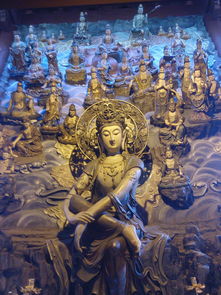七夕乞巧的起源与文化象征
在炎炎夏日即将落幕,秋风初起之际,中国传统节日——七夕节便如约而至,七夕节,又被称为牛郎织女节、女儿节或佳期等,是我国最重要的传统佳节之一,每年的七月初七是中国农历中第十五天,正值夏季的第三个庚午日,故此称为七夕,这一天,中国各地的人们欢聚一堂,举行各种丰富多彩的文化习俗活动,共同庆祝这个充满浪漫和美好的节日。
七夕乞巧的历史背景
七夕节 origins can be traced back to the legend of Li Bai and Zhuozhi, who were once celestial immortals in Chinese mythology. After marrying but being separated by heaven’s vast expanse, they wept countless tears, leaving behind embroidered clothing as their farewell gifts to their children (representing young girls). Therefore, on July Seventh(the Chinese date)of every year,girls offer small mirrors filled with colored powder to weaving spindles while praying for dexterous fingers and beautiful handcrafted silk scarves, symbolic of becoming eligible mothers. Hence came the traditional custom known as "Qi Qi" —— seeking skills by offering incense sticks before spindles, asking the gods' blessings on weaving and sewing. As time passed, this practice evolved into the modern custom of "Qiqiao Festival".

This ancient Chinese legend of love, longing, separation, tears, embroidered clothes, colorful powders, small mirrors, and spinning tools has captivated people throughout Chinese history.
According to an historical account by Sima Qian, an official of the Western Han Dynasty(公元前206年至公元8年),during a certain year when Emperor Wudi was celebrating the qiguan ceremony at the altar to Junque temple,a wealthy family's son offered two spinning tools to the emperor. In return, Emperor Wudi ordered them sent to Empress Wu Zetian, the only Empress Regnant in Chinese history. Empress Wu loved these tools so much that she asked her husband if he would exchange his sword to obtain the two spinning tools.
Thus,these two spinning tools have become cultural symbols of women's skills, beauty, and aspirations for domestic roles. Moreover,the story of the Cowherd and Weaver Queen has been transformed into the traditional custom of Qiqiao Festival and associated rituals. On July Seventh,families gather around the table,enjoying delicious food,sharing stories of love and romance,and exchanging handmade crafts made by female family members.
This celebration showcases the traditional values of harmony,filial piety,love,beauty,artistry,prudence,perseverance,cooperation and sharing among different groups such as families, communities, provinces and nations.
In today's world,this ancient tradition of Qi Qi is celebrated not only in China but also around the world,as more people realize its beauty,symbolism and importance. By preserving and promoting the cultural heritage of Qiqiao Festival,we pay tribute to the wisdom and creativity of ancient Chinese ancestors. We also encourage young people to appreciate traditional culture,enhance their social skills,build emotional connections and create meaningful relationships.
Finally, let us cherish this traditional festival,remember the rich cultural heritage it embodies,celebrate its romantic atmosphere,pay respects to all living things in nature,and promote harmonious social relations,progressive values and sustainable development through our actions in society and life.
1.本站遵循行业规范,任何转载的稿件都会明确标注作者和来源;2.本站的原创文章,请转载时务必注明文章作者和来源,不尊重原创的行为我们将追究责任;3.作者投稿可能会经我们编辑修改或补充。








